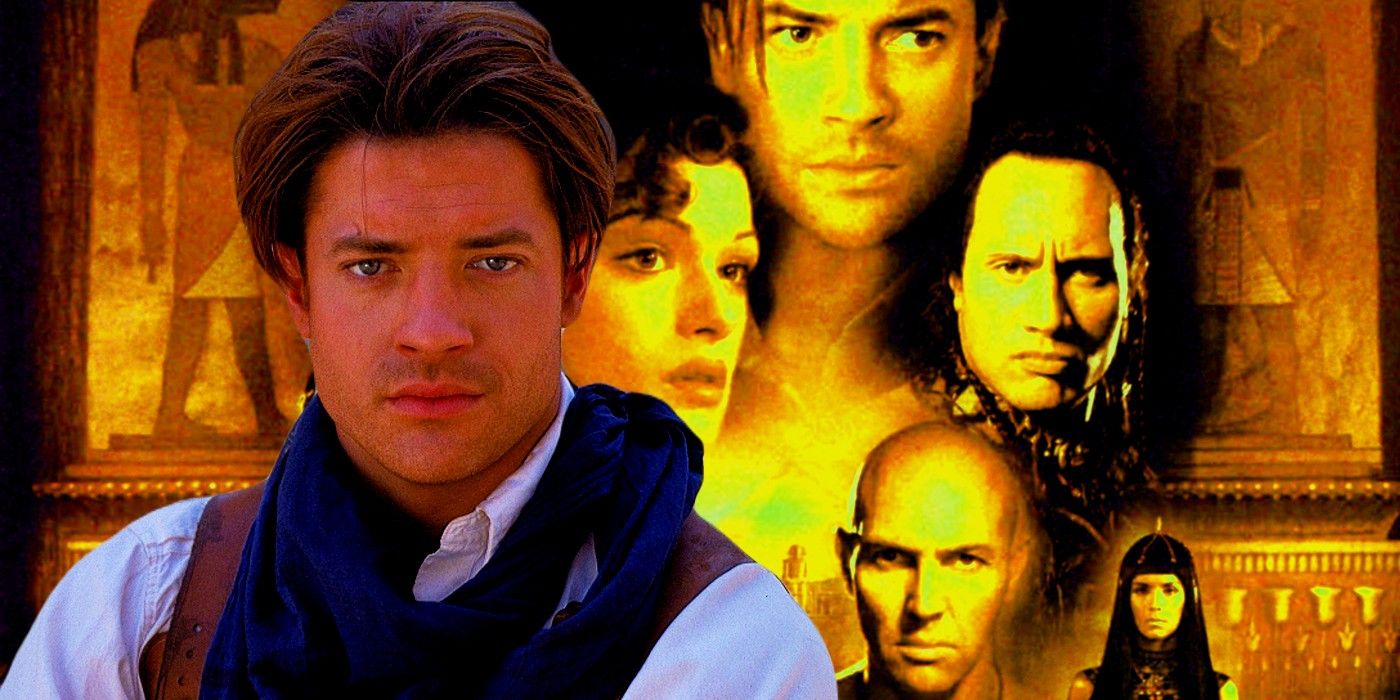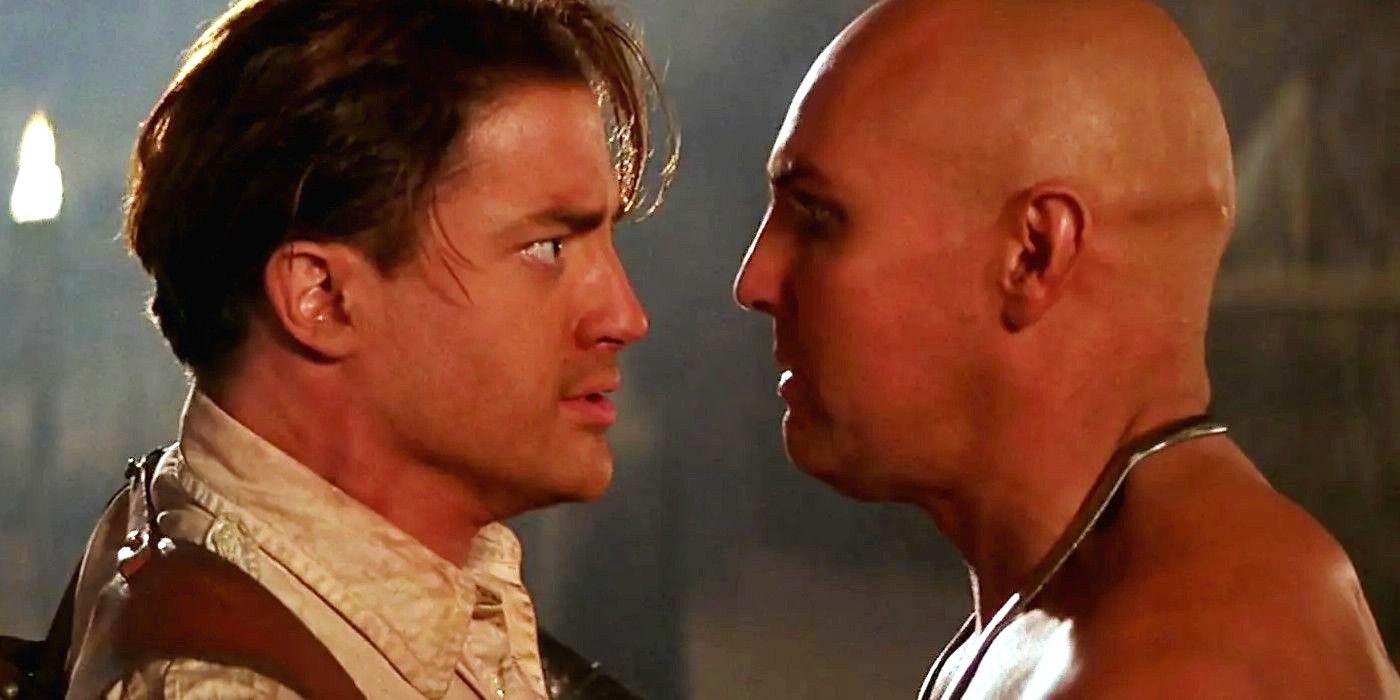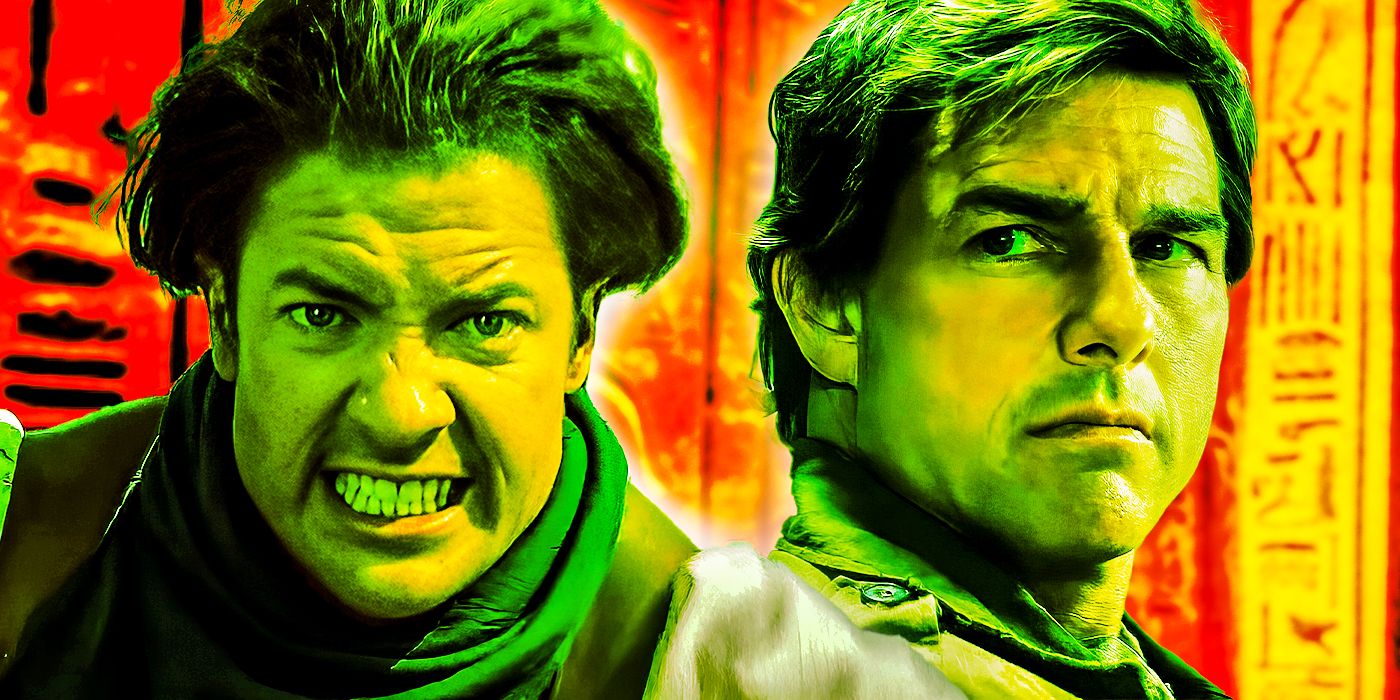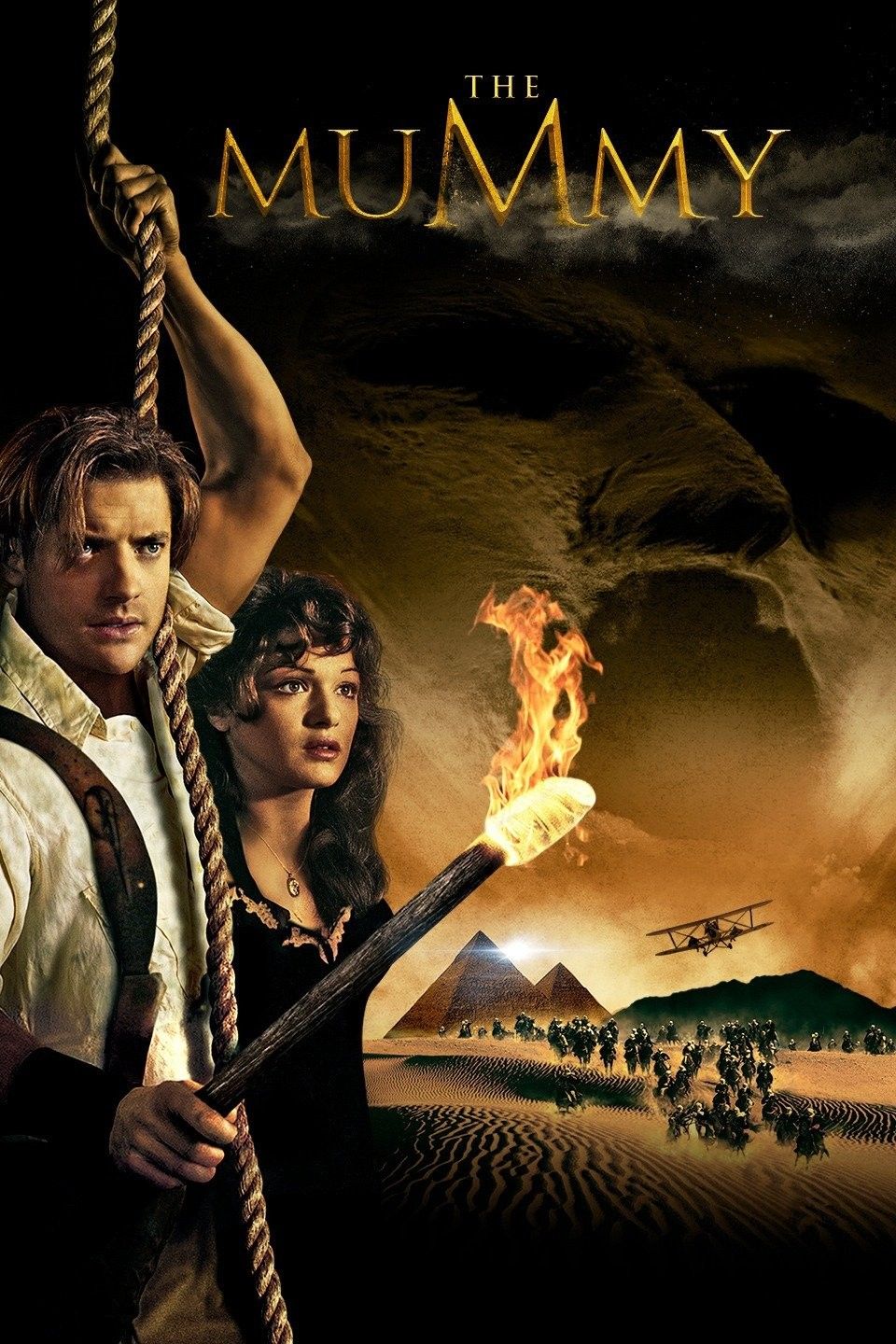The Mummy went through a lot of evolution and change during the development and production of the film, which almost resulted in a very different movie. Boris Karlof’s The Mummy was one of the foundational pieces of the Universal Movie Monster franchise, inspiring several films in that franchise. When the time came to reimagine the film decades later though, Universal was more torn on how to proceed. After over a decade in various stages of development, The Mummy was released in 1999 to massive box office success.
The film focuses on the ancient Imhotep being awoken in the 1920s, with only a handful of explorers, archeologists, and scoundrels capable of stopping him from bringing chaos and destruction to the world. The movie’s unique blend of action, adventure, romance, and horror made it an instant audience favorite, generating several sequels and spin-offs. However, the film that came to be wasn’t anything like the earlier proposals for a remake of The Mummy, which went through several changes in tone, focus, and setting. Here are the biggest ways The Mummy was almost a very different movie.

Related
10 Harsh Realities Of Rewatching Brendan Fraser’s The Mummy Trilogy
Several uncomfortable truths are unveiled when rewatching Brandan Fraser’s beloved The Mummy trilogy, demonstrating how poorly it has aged.
7
Stephen Sommers Almost Didn’t Direct The Mummy
Several Legendary Horror Directors Almost Helmed The Mummy
The Mummy changed many times during development and production, almost becoming several different types of films before it reached theaters. This evolving approach to the material reflects the numerous directors who were approached or briefly attached to the Universal Monster Movie remake. Plans to remake The Mummy began over a decade before the film was released in 1999. Long before Stephen Sommers came on board to write and direct the film, several other notable filmmakers were given the opportunity. An early potential filmmaker approached was Night of the Living Dead director George A. Romero, who was approached film multiple times.
After the successful theatrical release of Hellraiser, Clive Barker was brought on. However, Universal balked at Barker’s ideas for the film. Gremlins director Joe Dante was briefly attached to the project, but Universal passed on his version of the film due to concerns about budget constraints. Wes Craven was also approached about the project but turned down the opportunity to direct the movie. This left the door open in 1997 for Stephen Sommers to pitch his dream version of the film, which shifted genres somewhat to incorporate action-adventure elements into the remake.
6
The Mummy Was Almost Set In The Modern-Day
Budgetary Reasons Almost Kept The Mummy From Being A Period Piece
A frequent sticking point with Universal Studios during the development of The Mummy stemmed from the potential price tag associated with the movie. This extended to the setting and time-period of the story. Stephen Sommers’ film largely takes place in 1926, giving the film a deliberate throwback vibe. Other filmmakers had also debated making the movie a period piece. However, Universal repeatedly fought against this concept, citing the budgetary complications caused by setting a film in a different period than the modern day. Screenwriter Abbie Bernstein’s version of The Mummy was among the earliest proposals for the film.
Bernstein’s take would have seen the supernatural creature brought back to life by modern-day scientists. Barker, Dante, and Romero’s versions of The Mummy would also have utilized a modern setting. The idea of setting the film in the past was brought up by screenwriter Mick Garris, who had written the screenplay for Barker’s proposed take on the project and returned in 1995 to pen a new script. Although Garris ultimately left the film, Universal ran with the idea of turning the film into a period piece — which fit perfectly into Sommers’ idea for an adventure-driven take on the premise.
5
The Mummy Was Almost A Straight Horror Film
How The Mummy Became An Adventure Movie Instead Of Just A Horror Film
Sommers’ concept for an action-adventure version of The Mummy proved to be a rousing success, leading to a huge box office win for Universal and the subsequent Mummy franchise. Despite the more rousing and charming elements of the movie, The Mummy still retains the creative DNA of the original horror film. Imhotep is a genuinely frightening villain when he wants to be, and the imagery at times remains unsettling over two decades later. Other ideas for The Mummy didn’t have the same tonal balance as Sommer’s concept. Instead, earlier conceptions for The Mummy kept the remake firmly rooted in the horror genre.
Universal’s original plans for The Mummy were described as being akin to The Terminator. This would have made Imhotep into a far less compelling character, instead utilizing the titular Mummy as an unstoppable killing force rather than a tragic villain driven by lost love. Clive Barker’s approach to the story would have been tonally closer to Hellraiser, with a dark and sexual story that made Universal execs uneasy. George A. Romero’s second approach to the concept would have been influenced by his zombie films, which proved too violent for Universal.

Related
The Mummy’s Most Terrifying Creature Is (Sort Of) Based On Real Life
While many liberties were taken with the depictions of real events in 1999’s The Mummy, one of its scariest creatures is mostly rooted in reality.
4
Brenden Fraser Almost Didn’t Play Rick O’Connell
Tom Cruise Was Almost In 1999’s The Mummy Instead Of 2017’s Version
Rick O’Connell is the unlikely heart and soul of The Mummy. Played by Brendan Fraser with a snarky charm, O’Connell’s rough edges and big heart make him an ideal hero for the film. Fraser plays the character well, shifting easily alongside the movie’s different tonal beats. Fraser was far from the initial pick for the part, though. Matt Damon, Ben Affleck, Brad Pitt, and Tom Cruise were all offered the part of Rick, but turned it down due either to other commitments or lack of interest in the project. Notably, Tom Cruise later starred in 2017’s The Mummy.
Fraser was eventually approached as an ideal fit from both a financial and artistic standpoint. The success of George of the Jungle proved to Universal that Fraser could headline a theatrical film, all while his relatively smaller star power made him a far more affordable actor to bring onto the project. Sommers was specifically impressed by Fraser’s charms, comparing him to the swashbuckling heroes of old cinema like Errol Flynn. The result was a fun performance that the entire film relies on, and one that Fraser delivered well.
3
The Medjai Of The Mummy Were Almost Very Different
Ardeth Bay Almost Didn’t Survive The Ending Of The Mummy
The Medjai in The Mummy are a centuries-old order of warriors who work to keep the evil of Imhotep from infecting the rest of the world. Based on a real-life order of royal guards in ancient Egypt, The Mummy‘s Medjai are largely represented by Ardeth Bay. Bay serves as an exposition dump for the film’s lore while also providing a helping hand in the climax of the film, fighting alongside the heroes against Imhotep and his undead warriors. Played by Oded Fehr in the film, Ardeth and the Medjai as a whole went through several changes during production.
Initially, the Medjai were going to be portrayed as being tattooed across their entire bodies. However, Sommers decided this would have covered up too much of Fehr’s body, and changed the tattoos to be more specifically placed. Ardeth was also meant to die in the film. In Sommers’s original script, Ardeth would have not survived the battle with Imhotep’s forces. Sommers grew to see the character as too heroic to simply die like that and changed the ending of the script so that he survived. This allowed Ardeth to appear in The Mummy Returns.

Related
What Went Wrong With The Mummy: 10 Ways The Franchise Got Worse After Brendan Fraser’s 1999 Debut
In 1999 Brendan Fraser’s The Mummy was a spectacular blockbuster sensation, but with every sequel movie and reboot, the franchise got worse and worse.
2
The Film’s Original Narration Was Almost Read By Imhotep
Why It’s Important That Imhotep Didn’t Tell His Own Story
Changes occurred to The Mummy even after the final cast and crew were assembled. This can be seen from the very beginning of the film, with the opening shot changing during production. The opening sequence recounts the origins of Imhotep in ancient Egypt. It was initially intended for Imhotep to recount the story himself, serving as the narrator for the film’s opening. However, Sommers ultimately decided that it wouldn’t make sense for Imhotep to tell the story in English. Instead, while Imhotep remained the focus of The Mummy‘s opening scene, the narration was given to Ardeth instead.
This works on several levels, even beyond the clear disconnect of having Imohtep speaking perfect English despite his ancient ways and perspective. By creating a disconnect between Imhotep the character and Imhotep the storytelling, audiences get to witness the tragedy and horror of his story from a completely neutral place. It also establishes Ardeth as a storyteller and keeper of legends, befitting the role he eventually plays in the film. The implication that Imhotep’s fate has been passed down through generations of the Medjai adds to the lived-in sensation of the film, expanding the world of the story.
1
Evy & Jonathan’s Father Was Almost Based On A Real-Life Archeologist
The Mummy Almost Had A Direct Connection To King Tut
The Medjai aren’t the only historical reference in The Mummy. The movie makes use of the French Foreign Legion in Rick O’Connell’s introductory scene, and Winston Havelock is established as being a veteran of the First World War. However, Evy and Jonathan were almost directly connected to a major historical figure. In The Mummy, Evy and Jonathan are established as the children of an explorer who died prior to the events of the film. In earlier scripts of The Mummy, their father was confirmed to be George Herbert. Herbert was an English aristocrat with a historically important interest in Egyptology.
Herbert was a major financial backer for several excavations in Egypt. This included the discovery of Tutankhamun’s tomb in the Valley of the Kings, which remains one of the most iconic collections of ancient Egyptian artifacts ever discovered. By the time The Mummy was completed, this connection to Herbert was replaced with the more average family name of Carnahan. However, the movie still found a way to reference the Herbet family, as Evy was named after Herbert’s real-life daughter, who accompanied him on several visits to Egypt. This way, The Mummy still references real-life history in unexpected ways.

The Mummy (1999)
The Mummy (1999) is an action/adventure/fantasy film directed by Stephen Sommers that stars Brendan Fraser as the dashing Rick O’Connell, an adventurer who always manages to get into trouble. Back in 1290 BC, Imhotep killed Pharaoh Seti I with the help of his wife, Anck-Su-Namun, and the two of them died with the promise to reunite in the future. Fast forward to the 1900s, siblings Jonathan and Evelyn acquire a map that will lead them to the lost city of Hamunaptra. Rick, wanting his map back, cuts a deal with them, agreeing to travel together for the promise of untold treasures. However, Hamunaptra is where Imhotep is and accidentally resurrects the now ancient mummified priest, who seeks to restore his body and revive his lost love. Rick, Jonathan, and Evelyn will have to battle with ancient mummies, death traps, and more to stop the return of Imhotep.
- Director
-
Stephen Sommers
- Writers
-
Stephen Sommers
, Lloyd Fonvielle
, Kevin Jarre - Cast
-
Brendan Fraser
, Rachel Weisz
, John Hannah
, Arnold Vosloo
, Jonathan Hyde
, Kevin J. O’Connor
, Oded Fehr




